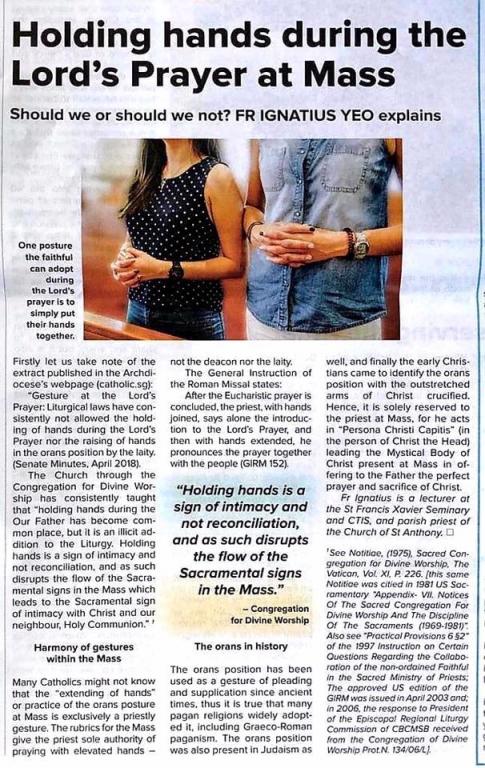Now that the MP has arrived, there is a small matter that is going to come up in this country. Who is your pastor? I will let actual Canonists offer answers to that question, but this is the one question that will be asked in various forms in many places.
The U.S. doesn’t really have parishes. Yes, there are actual parishes (numerous in fact, but growing smaller by the day) in the U.S. Being largely an immigrant people however, most Catholics in this country, especially 50 years ago, were raised in a quasi-parish. Whereas most parts of the world require one to be a member of their territorial parish, this is not either a requirement or has been excepted so much as to be meaningless in this country. I’m not attempting to sound trite in the last statement; I’m just trying to accurately reflect the Catholic condition in this country.
My reading of the MP is that a duty is placed upon the pastor to offer the TLM if certain conditions are met. Now, this may not be a problem with Fr. A, the bright and happy guy that is thrilled to death that you and 15 other families drive from 20 miles away to attend his services. Fr. A may just go ahead with it. Now if you happen to be in the liturgical mine field of the province of WI – our present crop of bishops truly is a blessing, but there was a lot of bad previously and these things take time – and you gather twenty of your buddies from the metro area and approach Fr. B, he may well go and tell you to fly a kite. He may be polite about the matter and just state that he doesn’t have the authority to establish a quasi-parish and your friends need to go to their pastors. All the sudden you are a party of one making the petition, or you are faced with requesting the TLM from the bishop, something that was already within your rights. (I know the TLM is offered in Milw. and GB.)
I find this all fascinating to be honest. For starters, my heart is with Fr. A, but I know Fr. B is right. The truth of the matter is that pastors aren’t mini bishops. This is the same reason to object to the gay church, the peace and love church, or Our Lady of the Republican Party church. If a pastor believes that a community within the diocese is being under served, he should go to the bishop and request the proper blessing to have such a ministry. Very rarely do we see that though. It is really to the point of being ridiculous. If you go to a major city where you may have 20 or more parishes, it would be a sight to see if someone put up a color pattern of where the person lived with the color of the actual parish they attended. I have a feeling that it would not be a pretty red/blue state map. In some cases, a person may not be able to discern within 10 blocks where a given parish is located just by judging where her attendees lived.
I haven’t bothered defining a parish in this post although most of you already know the answer or could intuitively guess it at this point. I haven’t defined pastor for that matter. I will pick three canons.
Can. 515 §1. A parish is a certain community of the Christian faithful stably constituted in a particular church, whose pastoral care is entrusted to a pastor (parochus) as its proper pastor (pastor) under the authority of the diocesan bishop.
Can. 518 As a general rule a parish is to be territorial, that is, one which includes all the Christian faithful of a certain territory. When it is expedient, however, personal parishes are to be established determined by reason of the rite, language, or nationality of the Christian faithful of some territory, or even for some other reason.
Can. 519 The pastor (parochus) is the proper pastor (pastor) of the parish entrusted to him, exercising the pastoral care of the community committed to him under the authority of the diocesan bishop in whose ministry of Christ he has been called to share, so that for that same community he carries out the functions of teaching, sanctifying, and governing, also with the cooperation of other presbyters or deacons and with the assistance of lay members of the Christian faithful, according to the norm of law. (Code of Canon Law)
I want to be extremely careful in noting that I’m not a canonist. This is not intended to be a canonical argument or proof. It is lay speculation that is more or less informed, leaving that to the interpretation of the reader. I do think it will be interesting to see how this plays out.












